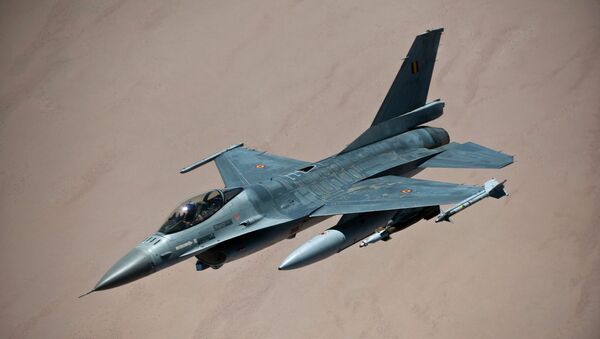The Pentagon's "Defense Innovation Unit Experimental" is currently working with tech companies to implement AI, machine learning and automation technologies in military jets to create an AI program that can predict plane failures before they occur.
They envision a system that would analyze all kinds of factors, from the plane's internal performance parameters to its geographic location, and inform maintenance crews about which plane is in the most need of repairs.
"F-16s will benefit from predictive maintenance as a way to inform pilots of which aircraft are at the highest risk in terms of being unreliable. We pinpoint systems such as engines and subsystems such as the propulsion," says Ed Abbo, C3 IoT president and CTO.
The C3 IoT platform already allows the Pentagon to aggregate and store enormous amounts of disparate information on a unified cloud-based data image, which runs on Amazon Web Services.
The idea behind the onboard AI is that it can tell different failure cases apart.
"If a machine fails during a desert landing, then algorithms can recognize that by analyzing other failure cases. We are looking at different properties and looking at prior failure cases so algorithms can determine when something like a propulsion system is likely to fail," Abbo said.
Not every plane will be able to process the telemetry data onboard, though. Planes with older avionics will be able to transmit the collected data to the computational server only after they land, Abbo explains.
According to Business Insider, newer aircraft can perform analytics onboard and even record the pilot's voice and process language information, meaning the pilot could "talk" to their plane's computer, just like in "Star Trek."



